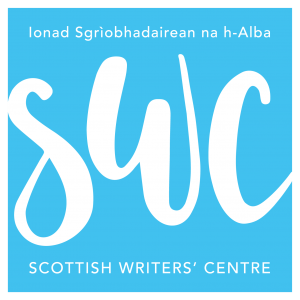On the 2nd of November, the Scottish Writers’ Centre hosted their third annual ‘Dias de los Muertos’. Following the Mexican tradition for the ‘Day of the Dead’, we had an evening of poetry dedicated to those who are no longer with us. The night was held in partnership with Dovetales, a Scottish charity organization which seeks to promote peace and understanding through art and writing. The night was hosted by Liz Niven, a Scottish poet with a special interest in looking at the history and experiences of other countries through a Scottish perspective. Liz is also known for exploring the ways in which people rebuild their lives when they have been drastically altered or devastated.
The primary focus of this year’s event was to honour those who have died as a result of war or conflict, specifically the current humanitarian crisis in Yemen. Since 2015 Yemen has been in the grip of a brutal civil war which has left the population decimated, with little hope of resolve. Dovetales is part of a wider movement urging an enquiry into the situation in Yemen, with regards to the numerous violations of human rights law which have occurred there. The evening was divided into two sections: the first consisted of readings from several poets with direct links to organizations promoting peace and justice, both in Yemen and elsewhere in the world. The second section consisted of an open mic night where poets and prose writers were free to read their own works on the theme of remembrance.

The first poet to read was Sheila Templeton. Sheila is involved with the Edinburgh-based organization Mercycore who have been working in Yemen since 2011 helping to provide vital support to families and attempting to stop the spread of cholera which has been rife due to a lack of clean water. Sheila first delivered ‘A Child Dies Every Ten Minutes In The Yemen… ‘, a report from Michael McKean, Director of Programmes at Mercy Corps 2017, followed by two powerful poems by Yemani poets: ‘The Armed Militias’ by Naji Almurisi and ‘Not Dead’ by Ali Alnamer. She later read two of her own poems in the open mic, first ‘Another Road‘, then ‘Missthriven‘. Sheila beautifully captured the links between personal and national grief in her readings, by first exploring the overwhelming damage done in Yemen, then speaking intimately about the death of her mother.
The second poet to read was A.C Clarke. A.C is a poet and translator, as well as an active member of Scottish PEN, part of a global organization which promotes literature and freedom of expression. She also works with refugee poets. A.C also chose to honour Yemani poet Naji Almurisi by reading his poem ‘Enemies of the Peace‘. She then went on to read two poems by the late Tessa Ransford, who was both president of Scottish PEN and a founder of the Scottish Poetry Library. The first poem ‘Girl Raking Hay’, recalls World war two, and the second ‘Let It Not Be Said‘ is a pointed response to the current Arms trade. This link between present and past conflicts was a poignant reminder that the global community simply hasn’t come far enough in the struggle for peace.
The final guest was Iyad Hayatleh, who is also an active member of Scottish PEN. Iyad explored the connections between, personal, national and international expressions of grief and memory. His final poem ‘Supplication’ was a disturbing glimpse of the continuous death endured by countries at war, begging death to “forget” those in war zones. Iyad was followed by Liz reading several of her own poems on the theme of loss, again both on a personal level and her take on larger tragedies such as the Holocaust. Liz shared some incredibly intimate poetry which she admitted she had never read publicly before, proof of the special atmosphere and openness fostered by a night of remembrance.

The night was rounded off by an open mic where writers shared both poetry and prose, blending themes of loss, conflict, death, memory and the meeting of cultures. ‘Dias de los Muertos’ was a wonderful celebration of those who are no longer with us, but also a reminder of the things we can do to build a bridge from conflict to peace.
Words by Jessie Docherty
Photos by Alastair Millar



